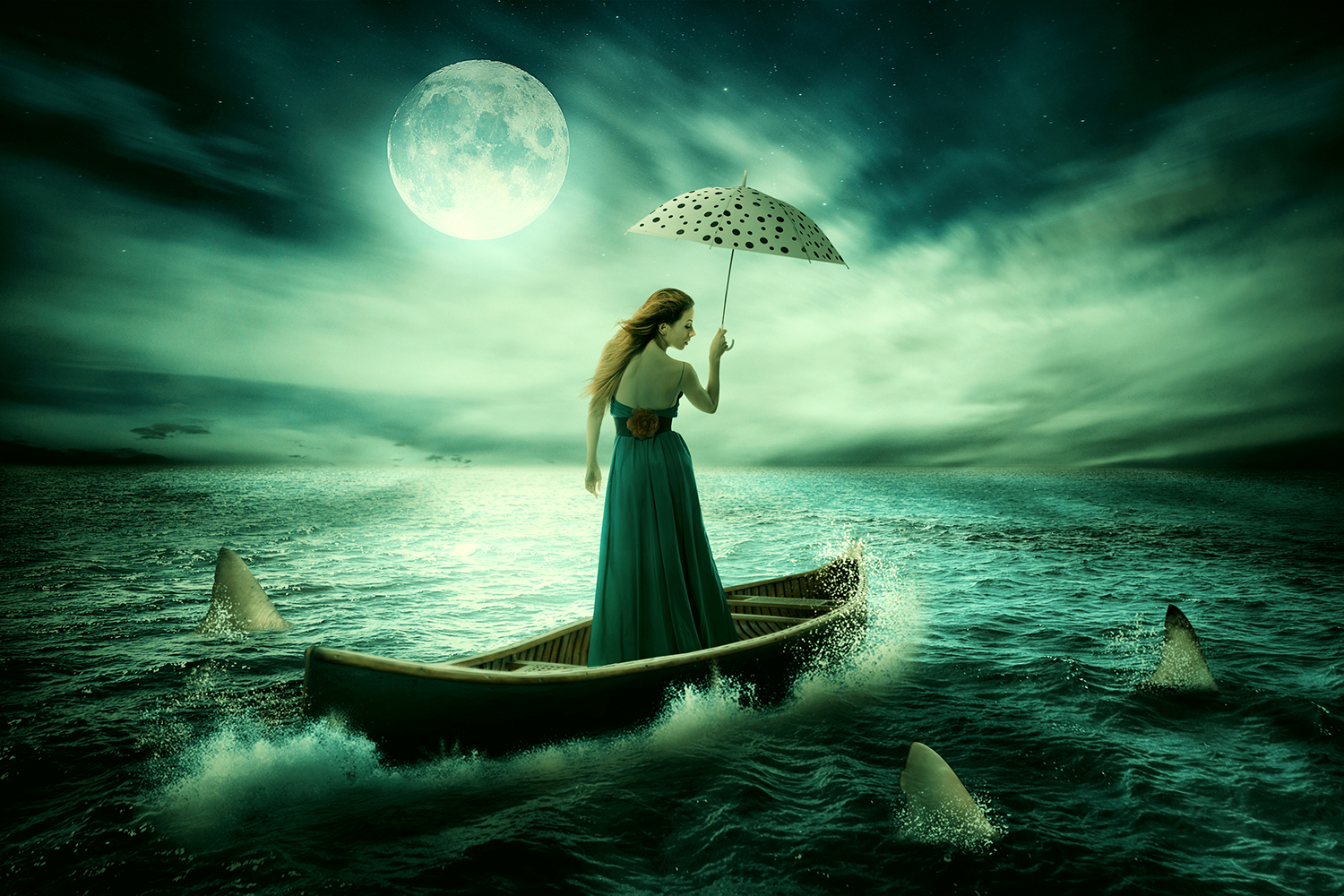Has The World Gone Completely Bonkers?
Yes, and here's what to do about it.

Photo 72740839 © Kiosea39 | Dreamstime.com
Nuclear threats. The climate crisis. The Ukraine War. Civil War. Undrinkable water. Economic uncertainty. Mass migrations.
Are we living in a dark age? Journalist and activist Jane Jacobs thought so, and her prescient book Dark Age Ahead made that argument when it came out in 2004.
I recently ran across an item in The Week which seems to make a strong case that what we’re now experiencing is exactly that:
A multi-decade analysis of 150,000 pop songs showed that uses of the word 'love' in top 100 songs declined by 50% between 1965 and 2015 while the incidence of 'hate' and other negative terms rose sharply.
You might find yourself deeply troubled by any or all of these trends. If that’s the case, then congratulations: you’re a normal, thinking, feeling human being. The involuntary angst that goes along with thinking about such matters thrives in the subterranean reaches of our consciousness and, ultimately, the associated darkness is hard to avoid.
Beyond Outrage
Recently, I found myself thinking about a bumper sticker I saw years ago when “statement” bumper stickers were still in vogue: “If you’re not outraged, you’re not paying attention.”
Outrage, of course, can only take us so far. But if anyone is not concerned about the state of the planet, they’re probably deep in denial. On the other hand, being awake and aware of the full spectrum of the human condition right now might seem like a mixed blessing.
You may be wondering: What do I do with these feelings of anger, depression, outrage, despair, garden-variety sorrow, and any number of other deep emotional reactions to the state of the world? This is indeed a challenge.
First off, give yourself a pat on the back for being dialed in to a very unusual time in history, a special time in more ways than one, although you might find yourself wishing it wasn’t so special. But we’re all here now and struggling and feeling deeply about the state of the world. Thinking about how it will affect us, our families, and our friends is a normal and natural response.
You might also be asking yourself lots of questions and struggling to find answers, often without success. What might come bubbling up as Question Number One is:
- What do I need to do with this awareness?
- How should I respond and what are the options?
- How do I maintain and engage this awareness in the world around me to possibly make things a little better?
I wish I could offer a simple answer. There’s really no “proper” response to being an alive and awake human being at this extraordinary existential crossroads in time.
But there are definitely choices to be made. (Pesky things, choices.) And each of us has to figure how to best navigate through it all.
Choices in an Unusual Time
What I can do is lay out some choices. The great cultural historian William Irwin Thompson once said that, in times of civilizational turmoil and redefinition, retreating is a time-honored response. Such is the time we’re living in now.
Living “off the grid” is always an option. What that means first and foremost is disconnecting from consumer culture and the power that technology gives to unthinking, unfeeling corporations over the most minute aspects of our lives while we try to embrace a commitment to a better quality of life amid the chaos.
You might be feeling a tug towards something like this which could take the form of moving into the country, traveling, or even being a digital nomad in your day job as both of my daughters have done at different times in their lives.
The opposite of this and yet another option is full-on engagement.
In my own case, I decided that one thing I needed to do was look around at the planetary mess and select some small piece of work that needed to be done to try and move the needle a bit. My own term for this is micro-activism, possibly analogous to just lending a hand as you might see in news footage of neighbors helping out after a natural disaster strikes.
There’s no shortage of ways to do this and no shortage of work to be done. That’s something you may or may not feel called to do but, if you do, just go for it without holding back.
Sometimes this kind of work can feel hopelessly Sisyphean but so what?
Balancing Activism and “Smelling the Roses”
But what about the rest of our lives amid this turmoil?
I try to balance this work with as much self-care as I can muster. For me that’s some combination of ongoing practices such as meditation, Tai chi, what the Dutch call “Niksen” (doing nothing), and immersion in nature.
There’s a balance to be struck between activism and the need to recharge our batteries. When that balance gets out of whack (which can easily happen), then things stop flowing.
A somewhat applicable analogy is what parents are told by flight crews when a plane runs into trouble: use the oxygen mask on yourself first or you won’t be able to help your child or anyone else.
But there’s a third part which I haven’t talked about in previous blogs. And that’s what back in the day used to be called “smelling the roses,” just trying to enjoy life.
If you have a certain mindset, you might feel an unrelenting pressure to try to contribute to what cultural historian Morris Berman has called “the re-enchantment of the world.” But there’s nothing written in stone that says, while doing this, we have to abandon the pleasures and enjoyments of our own lives.
This can be a difficult area not just for activists but for anyone of a caring disposition. So, my message here is a simple one:
Yes, it’s ok to enjoy the best things of your life even as the world seems to be changing before your eyes beyond all recognition.
And yes, that can feel like a contradiction at times, but the notion of balancing is really the key.
The exquisite balance is between personal enjoyment, commitment to healing the planet, and spiritual growth. It's strictly a personal juggling act, the end point of which, has to feel right for you.
Tom Valovic
Tom Valovic is a writer, journalist, and tai chi practitioner of 22 years. He is the author of Digital Mythologies, which explores the relationship between spirituality and technology. He writes about a variety of topics including healthcare, politics, technology, spirituality, and the environment. He has written articles about the relationship of culture and technology for Annals of Earth, Wisdom Magazine, The Whole Earth Review, The Boston Globe, The San Francisco Examiner, Media Studies Journal, and many other publications. Tom has been a board member at Brookline Tai Chi in Massachusetts and is co-founder of the Emergence Project.
He always enjoys hearing from readers. Feel free to e-mail him at cloudhands5885@gmail.com.
Don't Miss a Thing!
Get the latest articles, recipes, and more, when you sign up for the tasteforlife.com newsletter.

